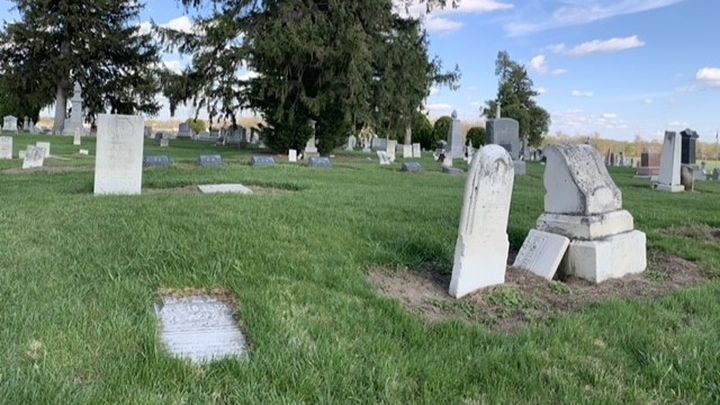
Tombstone for Dr. Gustavus Thatye
Donation protected
A hero's gravestone lies broken and scattered in Gilboa, Ohio. Help us raise funds to create a monument worthy of his selflessness. He gave his life that others might live.
In the late 1840's, Dr. Gustavus Thatye was exiled to the U.S. when his native Hungary fell to the Austrian Empire. He had supported the democratic revolution there until it was toppled by Austrian forces. A true freedom fighter, he'd come to live in the Ohio Valley, and was taken in by the Kisseberth family in Gilboa, Ohio.
Only a couple years later, in 1852, the scourge of cholera swept the tiny village. Dr. Thatye was the only local physician who had any experience fighting the deadly disease. When many locals, including his colleagues, fled for safety, Dr. Thatye stayed to treat those who had no means to leave.
He stayed valiantly to the end, treating the unlucky souls who contracted the then mysterious illness. It's believed that he saved the lives of at least 5, before 13 others, including himself, succumbed to the infectious disease.
Dr. Thatye's partial name is found on one small corner piece of a broken stone. It's found leaning against tombstones of the Kisseberth family plot (see photo). Another stone, set flush with the ground, bears his death date (Aug. 10, 1852), age (32 years) and the poem written in his honor. " On Hungary’s sunny plains, He bore the standard high. But death the exile claims, And beneath this stone he lies."
To hear the full story of this legendary history, you can listen to the Ohio Folklore podcast on most any podcast platform. Or, listen on the website here: https://ohiofolklore.com/
As we live through our own epidemic of COVID-19, we've come to appreciate the selfless acts of healthcare heros. This history teaches us that lessons like this, are old ones indeed.
Thank you kindly for your donations.
In the late 1840's, Dr. Gustavus Thatye was exiled to the U.S. when his native Hungary fell to the Austrian Empire. He had supported the democratic revolution there until it was toppled by Austrian forces. A true freedom fighter, he'd come to live in the Ohio Valley, and was taken in by the Kisseberth family in Gilboa, Ohio.
Only a couple years later, in 1852, the scourge of cholera swept the tiny village. Dr. Thatye was the only local physician who had any experience fighting the deadly disease. When many locals, including his colleagues, fled for safety, Dr. Thatye stayed to treat those who had no means to leave.
He stayed valiantly to the end, treating the unlucky souls who contracted the then mysterious illness. It's believed that he saved the lives of at least 5, before 13 others, including himself, succumbed to the infectious disease.
Dr. Thatye's partial name is found on one small corner piece of a broken stone. It's found leaning against tombstones of the Kisseberth family plot (see photo). Another stone, set flush with the ground, bears his death date (Aug. 10, 1852), age (32 years) and the poem written in his honor. " On Hungary’s sunny plains, He bore the standard high. But death the exile claims, And beneath this stone he lies."
To hear the full story of this legendary history, you can listen to the Ohio Folklore podcast on most any podcast platform. Or, listen on the website here: https://ohiofolklore.com/
As we live through our own epidemic of COVID-19, we've come to appreciate the selfless acts of healthcare heros. This history teaches us that lessons like this, are old ones indeed.
Thank you kindly for your donations.
Organizer
Melissa Davies
Organizer
Napoleon, OH